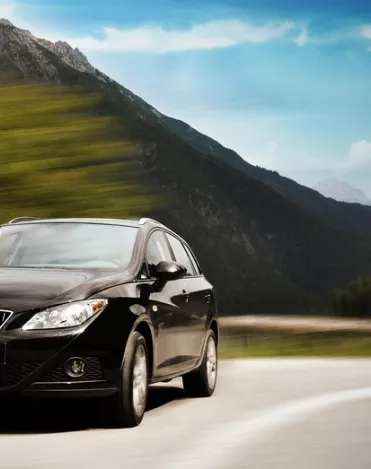Tips to reduce your fuel consumption: how to achieve good fuel efficiency
Reducing your fuel consumption is an important step in becoming more eco-friendly. There are several tips and tricks you can use to help reduce the amount of fuel you use. Point S helps you in providing you some elements to reduce your fuel bills: the impact of your tyres, traffic jam, weather, speed, traffic conditions, driving style… You will have all the keys to manage your own your fuel consumption!

How to Increase Fuel Efficiency in Your Vehicle?
Improving your vehicle’s fuel efficiency is one of the best ways to reduce your carbon footprint and save money at the same time. There are a few simple ways to reduce gas milage, such as adjusting your driving habits, maintaining your car regularly, and using fuel-efficient products. With a few small changes, you can make a big difference in your car’s fuel consumption!
What are the most common causes of increased fuel consumption?
Increased fuel consumption can be attributed to a number of factors. The most common causes include inefficient driving habits, poor vehicle maintenance, and incorrect tyre pressure. Improving fuel efficiency is an important step towards reducing emissions. By making small changes to the way you drive and maintain your vehicle, you can make a big difference in your fuel consumption.
What does fuel-efficient driving achieve?
Fuel-efficient driving is a great way to make fuel economy and reduce emissions while also saving money. There are several benefits to be gained from fuel-efficient driving, including improved vehicle performance, reduced maintenance costs, and improved fuel economy. By taking the time to become familiar with fuel-efficient driving techniques, drivers can enjoy all of these benefits and more.
What's most likely to increase fuel consumption?
When it comes to increasing fuel consumption, there are a few key factors to consider. Driving habits, vehicle maintenance, and the type of vehicle you drive all play a role in how much fuel your car consumes. Driving at higher speeds, over-revving the engine, and carrying extra weight can all contribute to higher fuel consumption.
Driving dynamically
The amount of fuel your vehicle consumes depends largely on how you drive. Every time you accelerate quickly, brake hard, or drive at high speeds, your vehicle will use more fuel.
Carrying extra weight
Carrying extra weight in your car can significantly reduce your fuel efficiency, as more fuel is needed to move the extra mass. Carrying extra loads, such as bike racks, heavy equipment, or unnecessary items will increase your gas milage. This means that the heavier your car is, the more fuel it will consume. To reduce fuel consumption, try to keep the weight in your car to a minimum.
When your tyre pressure is too weak or too high
When your tyre pressure is too weak or too high, it can have a major impact on your fuel efficiency. Maintaining the correct tyre pressure is an important part of reducing fuel consumption. Make sure you apply the correct pressure when checking your tyres before a long journey.
Under-inflated tyres have a greater rolling resistance and require more fuel to move the vehicle, while over-inflated tyres can lead to a decrease in traction and control. Checking your tyre pressure regularly and keeping it at the recommended level can help you save fuel and money.
Driving at lower gears
Driving at low or high speeds at lower gears uses more fuel. Indeed, your engine will run at higher RPM (the lower the gear, the higher the RPM). Your car's engine will need for fuel to do so. We recommend to drive at the highest great possible to reduce your gas milage. This is especially true for manual transmission vehicles, as the driver has more control over the gear selection.
When air con is on
Having your air conditioning on while driving can significantly increase your fuel consumption. This is because air con uses engine power to cool the air coming into the car, reducing the amount of power available for the wheels. To reduce fuel consumption when the air conditioning is on, try to keep your windows closed and set the fan speed to the lowest setting possible. Check our car air con guide for more information!
Poor car maintenance
Poor car maintenance is one of the major causes of high fuel consumption. Poorly maintained cars can be inefficient and consume more fuel than necessary. Regular maintenance checks and repairs can help reduce fuel consumption and save money in the long run. If you notice that your vehicle is suddenly overconsuming fuel, please go to your local Point S centre. Our expert mechanics will perform a car check and identify the source of overconsumption.
Which driving techniques can save fuel?
Reducing your fuel consumption can help you save money at the pump and reduce your environmental footprint. There are several simple steps you can take to achieve this goal, from driving smarter to maintaining your vehicle. Here are our top tips to help you reduce your fuel consumption!
Shut off your engine for a stop of more than 30s
Today’s cars use electronic fuel injectors that help to not waste fuel during startup. However, do not do it in street traffic since it can be dangerous due to switched-off cars.
Adapt your driving style
If you want to reduce your fuel costs, we advise you to drive steadily. Also, when you drive too fast, it deforms your tyres. And do you remember that tyres play an important role in fuel consumption?
Fill up your gas tank on mornings when it’s not too hot
Fuel evaporates when it is too hot outside. You can have the same problem when your tank is empty. It is better to fill up your fuel tank before it is totally empty to avoid this phenomenon.
Close your windows and avoid heavy stuff
Do you have a roof box or a bicycle rack? If you don’t need them, don’t take them with you. In fact, you should avoid all rooftop cargo carriers because they slow your car down and so use more fuel. Besides, avoid to open your windows especially on highways because it implies additional efforts and overconsumption.
What is the impact of my tyres on fuel consumption?
Did you know that tyres can account for up to 20% of a vehicle’s fuel consumption?
You need to choose them carefully to optimise your fuel consumption: tyre size, tyre pressure, and tyre wear are elements that you must take into account before buying tyres.
If we talk about tyres with the same width but different diameters, the one with the larger diameter will help in increasing your vehicle's fuel economy as the larger the diameter the smaller number of times the wheel has to rotate to cover a given distance, resulting in less RPM.
Tyre pressure is crucial since low tyre pressure increases rolling resistance and impact wet grip performance. Be sure to inflate your tyres properly!
Ask your nearest Point S centre for more information. Do not hesitate to contact your Point S centre to get some help or advice to choose the best tyres for your vehicle or to check your tyre pressure.
Which other factors will reduce my fuel consumption?
Other factors have a significant impact on your fuel consumption like traffic jams, speed, driving in cold weather, the amount of air drag on your vehicle, traffic conditions and your vehicle configuration (engine type...). We give you some tips to optimise your fuel consumption.
Does cruise control help reducing fuel consumption?
Cruise control is an effective tool when it comes to reducing fuel consumption. By maintaining a steady speed, cruise control helps reduce the amount of fuel used and prevents sudden acceleration or deceleration, which can lead to a decrease in fuel efficiency. Cruise control can also be used to maintain a safe following distance, reducing the need for sudden braking and accelerating.
How can I calculate my own fuel consumption?
You don’t need to be an expert to calculate your own fuel consumption. Point S gives you 3 easy methods to calculate it and then manage your fuel consumption:
Looking at the average miles per gallon given by the constructor
Each car has a specific fuel efficiency measured in miles per gallon (MPG) and an amount of fuel in the gas tank. When you buy your car you get a technical specifications sheet where you can find the average consumption of your car. It is an average so it may vary for each car driver.
Checking on your car's dashboard
To get an exact fuel consumption you can use your dashboard where you can find the number of miles travelled and the number of gallons used. Think to set to 0 your trip odometer after your fill up your fuel tank to get your correct miles per gallon consumption.
To get your right consumption, you should wait a little bit as during the first few miles, your fuel consumption may be high.
Calculating your car's MPG
If your car doesn’t offer its MPG, you want to calculate it by yourself you can set to 0 your trip odometer after you fill up your fuel tank. Now you know how many gallons you put in your car, and you will know how many miles you have done for this amount of fuel when it will be empty again. Then you just have to calculate miles driven divided by gallons used to travel this distance and you'll get your car's MPG.
For instance, if you put 5 gallons of fuel in your car and you drove 200 miles with it, it means your car consumed 50 miles per gallon.
Doesn’t it look easy now? Choose carefully your tyres, change your driving habits and you will see your fuel costs decrease. Besides, in reducing your fuel costs you will also drop your emissions of carbon dioxide and that is good for our environment!
Does fuel efficiency reduce my car's C02 emissions?
Increasing your car's fuel efficiency is one of the most effective ways to reduce your car's carbon dioxide (CO2) emissions that contribute to climate change. By improving the fuel efficiency of your car, you reduce the amount of fuel you need to use to go the same distance, and in turn reduce the amount of CO2 released into the atmosphere. By making simple changes to your driving habits and vehicle maintenance, you can reduce your fuel consumption and help the environment.
For more information and advice, make an appointment directly with one of our experts!



